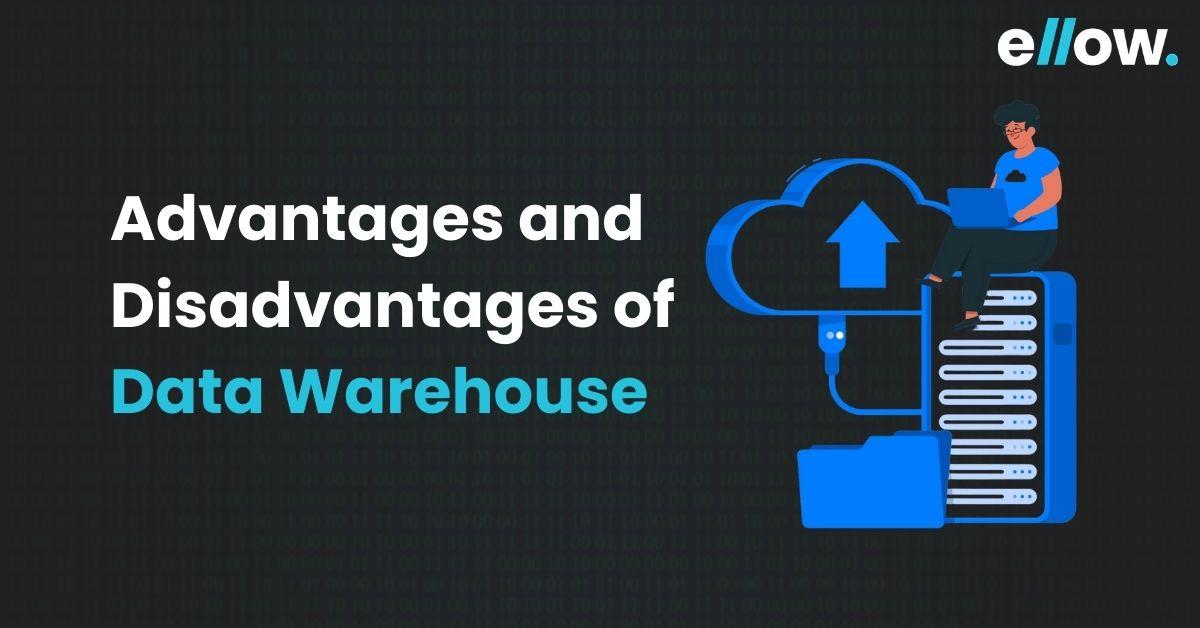Let’s build the future together.
Great ideas need great people. Partner with us to bring your vision to life, or take the first step in your career by joining our team of innovators.

In today’s data-driven world, where information is pouring in from diverse sources globally, data warehouses have emerged as a crucial pillar of modern data management. They serve as specialized repositories for handling the ever-increasing volume of data, which often arrives in structured formats – neatly organized into tables and columns. This structured approach streamlines the storage, retrieval, and systematic analysis of data, offering organizations valuable insights.
According to IDC, the global datasphere is projected to reach 175 zettabytes by 2025. On average, a single person generates approximately 1.7 megabytes of data every second.
A data warehouse is a place where organized data is stored, examined, and retrieved. This data can be historical or newly generated one. Small and medium-sized businesses typically utilize cloud-based services for data storage, while large organizations and multinational corporations use data warehouses to manage large amounts of data.
Consider a large sales company that uses a data warehouse to store employee information. If the HR team of the company intends to raise employee salaries, they can easily access all employee data stored in the data warehouse. This data is structured and stored in a database, containing details like individual sales records, attendance, and current salaries. The HR team relies on the data warehouse to make decisions about salary increases.
Data warehouses do not store unstructured data. Instead, they first analyze raw data and use software to convert it into structured information, making it easily accessible and usable.
Check this video out: What Is a Data Warehouse?
A significant benefit of data warehouses is their capacity to enhance business intelligence. They provide a unified view of data from various sources, making it easier for organizations to access and analyze the information they need for decision-making. By consolidating data in one place, data warehouses simplify the often complex process of data integration.
Data quality and consistency are very important in data management. Data warehouses implement processes for data cleansing and transformation, which help in eliminating duplicate or inconsistent data. This ensures that the data stored in the warehouse is accurate and reliable. With high data quality standards in place, organizations can have confidence in the insights derived from their data warehouse.
Data warehouse can is cost-effective in terms of time and money. They enable organizations to process and analyze large volumes of data efficiently. When data handling is streamlined and optimized, it reduces the need for manual data preparation and management, allowing employees to focus on more value-added tasks.
Historical data is a goldmine for organizations. Data warehouses store historical data, facilitating trend analysis and a deeper understanding of business performance over time. By accessing and analyzing historical data, organizations can identify patterns, forecast future trends, and make informed strategic decisions. This historical perspective is invaluable for long-term planning and growth.
Investing in a data warehouse can lead to a high return on investment. By simplifying data integration, ensuring data quality, and providing powerful analytical capabilities, data warehouses empower organizations to make better decisions and gain a competitive edge. The insights derived from a data warehouse can lead to increased revenue, cost savings, and improved operational efficiency.
Additional work is required for using data warehouses because data stored in a warehouse is structured, meaning that to create reports, we must design and maintain predefined queries and data models. This is time-consuming and delays in generating essential reports.
Data warehouses depend on structured data, which is organized into predefined formats. This can be a problem when handling unstructured data, such as social media posts or multimedia content. Unstructured data doesn’t fit well within the structured framework of a data warehouse. If the organization deals with a lot of unstructured data, it will face problems in integrating the data effectively.
Data warehousing systems often involve multiple departments and teams. This can lead to ownership issues. Determining who is responsible for various aspects of the data warehouse, including data governance and quality, can become a complex task. Lack of clear ownership can result in inefficiencies and data management problems.
Implementing and maintaining a data warehouse can be resource-intensive. The organization has to invest in hardware, software, and skilled personnel to set up and manage the system. This upfront investment can be substantial and may not be feasible for small or resource-constrained organizations. The ongoing costs of maintaining a data warehouse can also add up over time.
Data warehouses are not immune to hidden problems. Issues related to data quality, transformation errors, and data integration challenges can emerge, and uncovering these problems can consume valuable time and resources. Such hidden issues can also lead to inaccurate reports and analyses, affecting decision-making.
Teradata stands out in the data warehousing space for its exceptional scalability and advanced analytics capabilities. It supports massive parallel processing and is well-suited for complex query handling, making it ideal for large enterprises with extensive data needs.
Snowflake’s cloud-based data warehousing service emphasizes simplicity and flexibility, enabling users to scale computing and storage resources independently. It supports a variety of data structures and types, and is known for its ease of use and maintenance.
IBM Db2 Warehouse excels in high-speed data processing and analysis, supporting both in-memory and disk-based storage. It integrates seamlessly with other IBM analytics and AI products, offering a robust environment for enterprise-level data solutions.
Amazon Redshift provides a cost-effective, scalable cloud-based data warehouse solution. It features columnar storage optimization and parallel execution capabilities, which enhance its ability to handle large-scale datasets and complex queries efficiently.
Actian Avalanche offers a hybrid data warehousing solution that integrates both on-premises and cloud environments. It provides real-time data analytics capabilities, making it suitable for dynamic business environments that require quick decision-making.
Oracle Exadata is renowned for its high performance and seamless integration with Oracle Database technologies. It is designed to optimize both transactional and analytical processing, making it a comprehensive solution for complex data management needs.
Google BigQuery is a fully-managed, serverless data warehouse that enables super-fast SQL queries using the processing power of Google’s infrastructure. It is designed for simplicity and cost efficiency, with a pricing model that charges for the amount of data processed.
Yellowbrick Data Warehouse is tailored for high-performance environments, supporting intensive data workloads. It utilizes a combination of in-memory and MPP architecture to deliver fast response times and robust data management capabilities.
Azure Synapse Analytics is a comprehensive analytics service that merges big data and data warehousing. It provides a unified experience to ingest, prepare, manage, and serve data for immediate BI and machine learning needs.
SAP BW/4HANA is an end-to-end data warehousing solution integrated within SAP’s broader ecosystem. It focuses on real-time business intelligence, providing tools for data modeling, administration, and runtime for comprehensive data management and analytics.
The future of data warehousing is shaped by ongoing technological changes and evolving data requirements. Data warehouses primarily focus on structured data. However, a significant trend involves the integration and analysis of unstructured data, which has given rise to the concept of data lakes.
The evolution of data warehousing hinges on the integration of data lakes with traditional data warehouses, creating a robust ecosystem for managing and analyzing a wide range of data formats. Cloud-based data warehousing solutions are becoming more accessible and cost-effective, also providing good scalability, lower infrastructure costs, and the ability to handle massive volumes of data.
According to Markets and Markets, In 2021, the worldwide market for cloud data warehousing was valued at approximately $4.7 billion. It is projected to reach revenues of about $12.9 billion by the conclusion of 2026, experiencing a compound annual growth rate (CAGR) of roughly 22.3% from 2021 to 2026.
Data warehouses offer significant advantages. They help organizations by integrating data, making efficient analyses, and giving access to historical data. These warehouses act as a central hub for structured data, enabling informed decision-making. As data continues to expand, it is crucial to evaluate data management needs. A future solution may lie in hybrid approaches, combining data lakes and warehouses for better data handling.
A data warehouse is a centralized repository where organized data, historical or newly generated, is stored, examined, and retrieved. Organizations often use data warehouses to manage large volumes of data, while smaller businesses may opt for cloud-based solutions.
Data warehouses enhance business intelligence, ensure data quality and consistency, save time and money, track historically intelligent data, and offer a high return on investment. They provide a unified view of data from various sources, simplify data integration, and facilitate trend analysis.
Using data warehouses can require extra effort for reporting, be inflexible for unstructured data, lead to ownership concerns in large organizations, and demand significant resources for implementation and maintenance. Hidden data issues can also consume time and affect data accuracy.
The future of data warehousing involves merging data lakes with data warehouses to handle diverse data types. Cloud-based data warehousing solutions are on the rise, offering scalability, cost-effectiveness, and improved data handling. The market for cloud data warehousing is expected to grow significantly in the coming years.
Organizations should carefully assess their data management needs, considering both the advantages and disadvantages of data warehousing. A hybrid approach, combining data lakes and warehouses, may offer a more flexible and scalable solution for handling diverse data sources in the future.

Vibe Coding vs AI Assisted Coding: The Difference That Will Define the Next Generation…

From Code Generation to Bug Detection: 10 AI Tools Every Developer Should Know in…

Ten Real-World Ways Enterprises Are Using AI Teams to Build Faster in 2026
Please feel free to share your thoughts and we can discuss it over a cup of tea.
Get a quote
Vibe Coding vs AI Assisted Coding: The Difference That Will Define the Next Generation…

Six Things to Consider When Hiring Remote Talent

ellow.io enters remote hires market with AI-based screening process